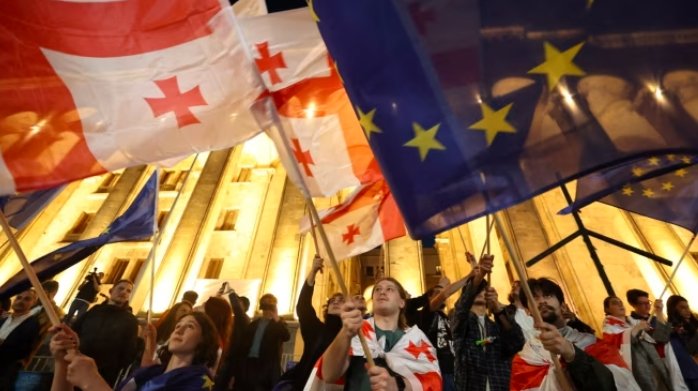Several European Union member states are urging the imposition of sanctions against Georgia due to the adoption of a controversial law known as the “Russian law.” Despite warnings from Brussels and sustained street protests, the Georgian parliament, an EU candidate country, passed legislation similar to Russia’s restrictive laws affecting media and human rights organizations. The law requires individuals receiving income from foreign funds to register in the government’s official register. As tensions escalate, EU foreign ministers are convening next week to discuss potential measures.
The “Foreign Agents” Law and Its Impact
Background
The Georgian parliament’s decision to enact the “Foreign Agents” law has raised concerns both domestically and internationally. The law’s provisions mirror those in Russia, leading to criticism from EU member states and the United States. The legislation’s implications for media freedom, civil society, and democratic processes are at the forefront of the debate.

Sanctions Considerations
- Visa-Free Regime Suspension: Estonia, the Netherlands, the Czech Republic, and Sweden are among the countries pushing for the suspension of Georgia’s visa-free regime with the EU.
- Freezing of EU Funds: The Financial Times reports that freezing EU funds is also on the table as a potential sanction.
- Other Measures: European countries are exploring additional actions to express their disapproval of the Georgian government’s move.
Impact on Georgia’s EU Aspirations
The adoption of the “Foreign Agents” law represents a significant setback for Georgia’s EU accession process. EU member states have warned that this move could push the country further into Russia’s sphere of influence. While discussions about sanctions are ongoing, policymakers must tread carefully to avoid unintended consequences that may affect citizens who support Georgia’s European course.
As Georgia grapples with the fallout from its controversial legislation, the international community closely monitors developments. The delicate balance between expressing disapproval and safeguarding democratic values remains a challenge. The upcoming EU foreign ministers’ meeting will determine the course of action, but the implications extend beyond legalities—they touch upon Georgia’s identity and its aspirations for closer European integration.
